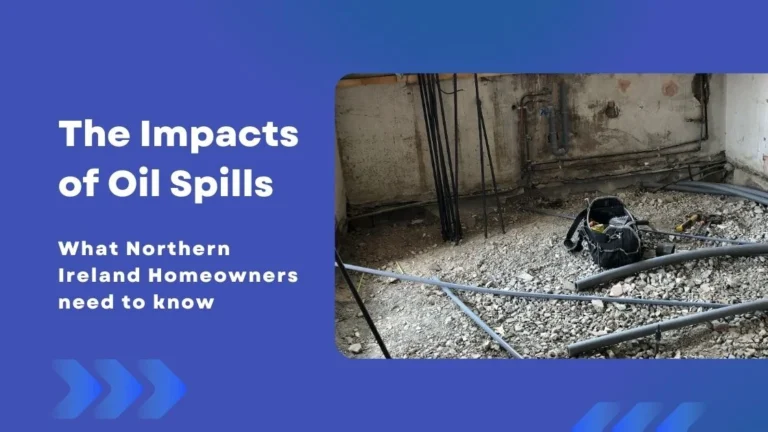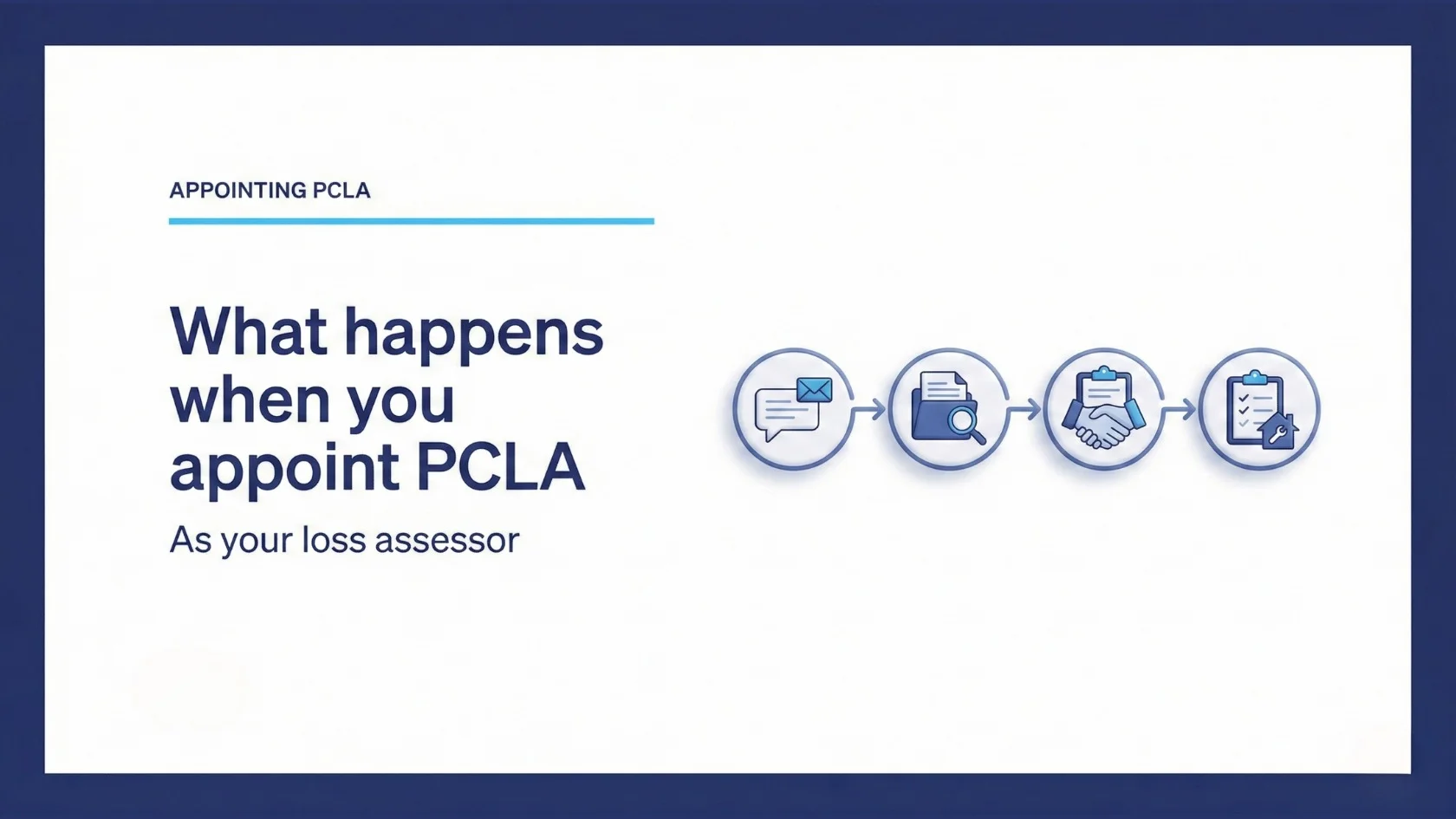Oil spills at home can lead to significant environmental and financial challenges, especially for homeowners in Northern Ireland. Understanding your insurance coverage and the steps for effective cleanup is essential. This article offers crucial insights into managing oil spill incidents and the insurance process to safeguard your property and peace of mind.
In October 2023, a homeowner in Downpatrick faced a situation that highlights the hidden risks associated with heating oil tanks. After filling their tank with 900 litres of oil in preparation for the cold months ahead, they noticed a strong, persistent oil smell inside their home.
A closer inspection revealed that the oil storage tank in their garden had leaked a significant portion of the oil within it, causing contamination to the surrounding soil and their home’s foundations.
This ordeal led to months of disruption, extensive restoration work, and a complex insurance claim. For the homeowner, the outcome hinged on timely action and expert support.
This blog explores the challenges posed by domestic oil spills, how to prevent them, and why professional help can be critical in securing your full insurance entitlement.
The Impacts of Oil Spills: Property, Health, and the Environment
Oil spills from domestic heating tanks can have far-reaching consequences that go beyond the obvious. They affect your home, your health, and even the environment around you.
Property Damage: The Hidden Costs
Oil leaks are insidious. Once oil escapes from a tank, it seeps into the ground and spreads quickly. Contaminated soil beneath a property can compromise its structural stability and lead to long-term damage. In our Downpatrick case, the homeowner faced a situation where their entire ground floor needed excavation. The process involved:
- Removing flooring, subflooring, and contaminated soil.
- Replacing affected areas with clean materials.
- Installing ventilation units to address lingering odours.
The total cost of these reinstatement works reached £95,000, highlighting how quickly a small leak can escalate into a massive financial burden.
Health Implications of Oil Spills
The health risks associated with oil leaks are significant, particularly for families with vulnerable individuals. Prolonged exposure to oil vapours can lead to symptoms such as:
- Respiratory Issues: Difficulty breathing or exacerbated conditions like asthma.
- Neurological Effects: Headaches, dizziness, or even confusion caused by volatile organic compounds (VOCs).
- Skin Irritation: Physical contact with contaminated surfaces can cause rashes or burns.
These effects underscore the urgency of addressing leaks immediately and professionally.
Environmental Damage
Oil spills also pose a severe threat to the local environment. The leaked oil can infiltrate groundwater, harming plants, animals, and even nearby water supplies. In rural areas of Northern Ireland, where homes are often near farmlands or watercourses, the potential for environmental contamination is particularly high.
Spotting the Early Signs of an Oil Leak
Early detection is the key to preventing extensive damage and mitigating risks. Homeowners need to be vigilant and proactive in identifying potential issues.
Key Indicators of a Leak
- Unexplained Odours: A strong, persistent smell of oil in your home or garden is often the first clue.
- Rapid Oil Depletion: If your tank is losing oil faster than usual, it could indicate a leak.
- Discoloured Soil or Vegetation: Patches of dead grass or unusually dark soil near the tank can be signs of contamination.
- Stains or Pools: Visible oil on the ground near the tank is a clear warning.
Detecting these signs early can save homeowners from the extensive damage seen in the Downpatrick case.
Common Causes of Leaks
Understanding what causes leaks can help homeowners take preventative measures. Common issues include:
- Aging Tanks: Over time, tanks can develop cracks or rust.
- Improper Installation: Tanks installed on uneven surfaces or without proper support are more prone to damage.
- Weather Damage: Harsh winters can weaken the structural integrity of oil tanks.
Preventing Oil Spills: Practical Steps for Homeowners
While some oil leaks are unavoidable, many can be prevented with regular maintenance and vigilance.
Best Practices for Oil Tank Maintenance
Taking these precautions not only protects your home but also minimises the risk of an environmental incident.
Professional Servicing
Engaging certified OFTEC technicians to service your oil tank annually ensures that any wear and tear is addressed before it leads to leaks. Proper maintenance can extend the life of your tank and reduce the likelihood of costly incidents.
The Downpatrick Case: A Step-by-Step Look at the Claims Process

The Downpatrick case illustrates the complexity of oil spill claims and the value of professional guidance. Here’s how PCLA managed the process.
Step 1: Policy Review
We began by thoroughly reviewing the homeowner’s insurance policy. This step was critical to understanding what was covered and ensuring the claim would be successful. Many policies in Northern Ireland include provisions for oil damage, but exclusions related to maintenance or negligence can complicate claims.
Step 2: Engaging Restoration Experts
An oil restoration company conducted a detailed survey of the property. They found widespread contamination, necessitating a comprehensive remediation plan. This included installing ventilation units to manage odours and preparing the home for excavation.
Step 3: Reporting and Negotiation
Submitting the claim involved presenting detailed evidence to the insurer. Given the high cost of repairs, the insurer appointed a second surveyor to validate the findings. Our team coordinated these assessments and ensured all parties understood the extent of the damage.
Step 4: Securing Alternative Accommodation
Restoration work rendered the home uninhabitable for eight months. We arranged temporary housing for the homeowner, securing insurer approval to cover these costs. This ensured minimal disruption for the family.
Step 5: Overseeing Remediation
We worked closely with contractors throughout the restoration, ensuring the work met safety and quality standards. When completed, the home was certified by the restoration company, who sent samples to be laboratory tested to ensure they were free from contamination. The homeowner returned to a safe, fully restored property.
Why Professional Help Matters
Navigating an oil spill claim without expert assistance can lead to delays, reduced settlements, or even outright denial. Here’s why involving a professional like PCLA is essential.
Avoiding Common Pitfalls
Homeowners without representation often face challenges such as:
- Underestimating Damage: Oil contamination spreads further than many realise.
- Insufficient Documentation: Proper evidence is crucial to a successful claim.
- Low Settlement Offers: Insurers may attempt to minimise payouts without professional negotiation.
What PCLA Offers
As independent loss assessors, PCLA acts exclusively on behalf of homeowners. With over 30 years of experience in Northern Ireland, our team provides:
- Comprehensive policy reviews to ensure coverage.
- Coordination with restoration experts and insurers.
- Advocacy to secure fair settlements.
- Ongoing support throughout the remediation process.
In the Downpatrick case, our involvement ensured the homeowner received their full entitlement, covering all costs associated with the spill.
Lessons from the Downpatrick Case
The Downpatrick oil spill offers valuable lessons for homeowners:
- Be Proactive: Regular maintenance and early detection are key to preventing leaks.
- Understand Your Insurance: Knowing your policy’s terms can save you from unexpected surprises.
- Seek Expert Support: Professional guidance simplifies the claims process and maximises your entitlement.
Conclusion: Protecting Your Home and Peace of Mind
Oil spills are a stark reminder of the vulnerabilities associated with domestic heating systems. From property damage to health risks, their impact is significant. However, with the right knowledge and support, homeowners can navigate these challenges effectively.
By maintaining your oil tank, staying vigilant for leaks, and seeking professional help when needed, you can protect your home, your family, and your peace of mind.
Final Thoughts
At PCLA, we specialise in helping homeowners navigate the complexities of insurance claims. If you’re dealing with an oil spill or any other property damage, contact us today for expert advice and support. Your home deserves the best protection, and we’re here to provide it.



